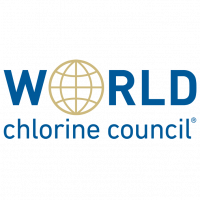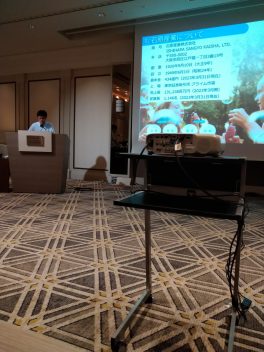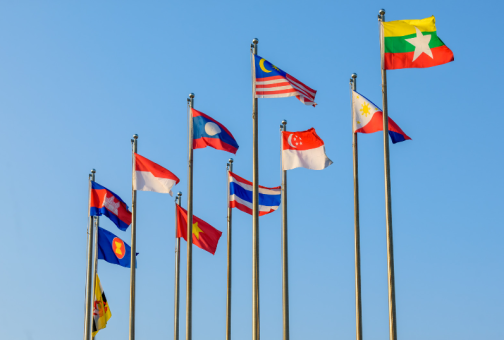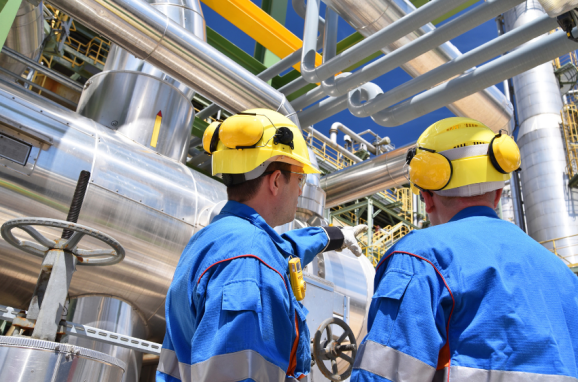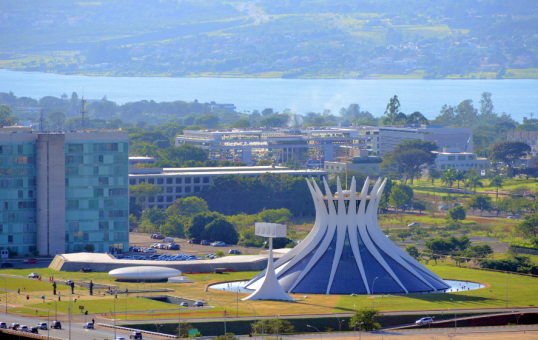| |
WCC Management Committee Regional Reports
India: The recently concluded 45th Annual General Meeting of the India Soda Industry Association (AMAI) highlighted the industry's post-COVID recovery, with production levels improving and demand picking up in 2023. India's unique chlorine consumption, driven by the organic and inorganic chemical industry, has been supported by expansions in agrochemicals, pharmaceuticals, specialty chemicals, and water treatment sectors. The Jal Jeevan Mission and Smart Cities Mission have boosted chlorine demand for water treatment and infrastructure projects. AMAI's focus on safety and sustainability, through training programs and participation in national and international events, reflects its commitment to advancing the industry. The meeting also discussed India's Green Hydrogen Roadmap, emphasizing clean hydrogen production and overcoming challenges such as high-power costs and safe disposal of waste. China: In 2022 and early 2023, the China Chlor-Alkali Industry Association (CCAIA) successfully organized several significant events and meetings, including the National Technical Annual Meeting of the caustic soda industry, the 10th China International Chlor-Alkali Conference, and the 4th council of the 11th session of CCAIA. These gatherings facilitated fruitful exchanges on technological innovation, energy conservation, carbon reduction, safety, and environmental protection within the industry. Key production and equipment enterprises shared their experiences, and international guests provided insights into the development status and challenges of the chlor-alkali industry in various regions. CCAIA also focused on safety guidelines and preparations for cleaner production evaluation. Looking forward, the highly anticipated 11th China International Chlor-Alkali Conference is scheduled for November 2023. These events demonstrate CCAIA's commitment to technical exchange, innovation, and sustainable development within the chlor-alkali industry.
South America: Throughout 2022 and early 2023, various chlor-alkali industry associations and companies in Latin America have made significant strides in sustainability, technology conversion, and community engagement. Brazil's Dow CAV plant is successfully converting from asbestos to non-asbestos technology, while the Brazilian Chlor-Alkali Association (Abiclor) has signed a sustainability protocol with the Environmental Agency of São Paulo. In Colombia, Quimpac has become an Authorized Economic Operator to facilitate trade, and they have also implemented sustainable energy solutions through solar parks. In Mexico, IQUISA is actively working on eliminating mercury use and implementing membrane technology for chlorine production. Uruguay's Efice has focused on conservation projects and new product introductions. These initiatives demonstrate the industry's commitment to safety, sustainability, and innovation in the region. Additionally, the associations have collaborated on evaluating the impact of PFAS and addressing transport safety concerns through programs like TRANSCAER. Overall, the chlor-alkali industry in Latin America continues to strive for responsible practices and advancements in technology and operations.
Japan: In Japan, the caustic soda supply and demand trends have been fluctuating, with varying production, import, and domestic demand figures over the years. While incidents were low for four years before 2022, two events and one incident occurred in 2022, prompting the need for further safety measures and analysis. Efforts towards non-fossil energy conversion targets and decarbonization in line with the GX roadmap are being made, with an emphasis on energy conservation, renewable energy, and hydrogen utilization. Additionally, initiatives for PFAS regulation have been discussed, aiming to address potential environmental and health concerns.
Korea: The Korea Chlor-Alkali Industry Association (KCAIA) has been actively engaged in various initiatives to promote clean hydrogen and address carbon emissions. In response to the Korean Government's preparation of the Clean Hydrogen Scheme, KCAIA established a temporary committee to advocate the advantages of chlorine-alkali hydrogen to the authorities. They are also gearing up for the 15th East Asia Chlor Alkali Meeting in Seoul, scheduled for September 6-7, 2023, in collaboration with JSIA and TAAIA. The association has participated in the Chemical Safety Forum to contribute to discussions on the designation and control of toxic substances, particularly regarding sodium hypochlorite. Additionally, KCAIA is closely monitoring the carbon credit market, which saw price fluctuations due to economic factors and geopolitical events. Vehicle defects remain a concern for incident occurrences in the industry, but efforts are underway to reduce incidents, especially during transportation of large quantities of HCl and caustic soda. Overall, KCAIA is actively addressing key issues like clean hydrogen, carbon emissions, and their impact on the chlor-alkali industry.
Europe: Euro Chlor is actively addressing critical issues facing the chlor-alkali industry under the leadership of the new Chair, Johan Van Den Broeck. The Management Committee and Energy Task Force meet regularly to tackle the current energy crisis, which has led to historical low levels of chlorine production. Safety remains a top priority, with the association working diligently to ensure industry-wide safety performance along the value chain. Euro Chlor is also responding to increased regulatory pressure for renewable energy adoption to meet 2030 targets and carbon neutrality commitments. To address the PFAS REACH restrictions, the industry is working on its contribution to the regulatory process. Euro Chlor has also organized a Hydrogen Day to explore opportunities for hydrogen use in industry. Additionally, the association is actively engaging its membership in Working Groups and Committees to collaborate on priorities. Overall, Euro Chlor is dedicated to promoting safety, sustainability, and innovation in the chlor-alkali industry while navigating complex energy and regulatory challenges. North America, Chlorine Institute: The chemical industry is currently facing significant challenges with respect to PFAS and chrysotile asbestos regulations, both of which are awaiting final rules and could lead to legal challenges. Further, the industry faces downstream pesticide product headwinds associated with chlorine gas registration review issued by EPA. These developments have far-reaching impacts, affecting everything from planned maintenance to product delivery. The industry is also grappling with issues in rail transport, with a doubling of transit time for rail shipments and shortages of parts altering inventory strategies. Furthermore, there is increasing government and public pressure to reduce energy usage and promote the use of renewables, particularly in the context of end products like single-use plastics. The recent train incident involving hazardous materials, including VCM, highlights the importance of emergency response procedures and tank car design. The Chlorine Institute is closely monitoring these developments and will await the final NTSB report for further insights. Key issues for the industry include crysotille asbestos, PFAS, rail transport, and registration review, while upcoming events like the 99th Chlorine Institute Annual Meetings provide crucial platforms for discussion and collaboration within the sector. The Chemical Industry Association of Canada (CIAC) has been actively involved in several key developments that impact the chemical industry in the country. The Final Report of the National Supply Chain Task Force, which includes recommendations for a long-term strategy and addressing labor shortages, has been released. CIAC's input played a role in shaping these recommendations, and the association is closely monitoring the implementation process. Additionally, CIAC is keeping a close eye on Bill C-38, which includes rail safety measures, as it could have implications for the industry's transportation operations. Furthermore, CIAC eagerly awaits the publication of the Canadian General Standards Board's work on tank cars and ton containers, which is expected to provide valuable guidelines and standards for the industry. Another significant development is the publication of the Transportation Information Regulations, which will furnish the industry with more detailed commodity and geographic data, enabling better planning and decision-making.
American Chemistry Council, Chlorine Panel: The Panel has been actively engaging in advocacy efforts to promote the safe shipping of chemicals, including hazardous materials, and to emphasize the industry's commitment to safety. ACC issued a statement highlighting the value of shipping chemicals and published a new rail safety webpage with additional information and resources for media and policymakers. ACC's Distribution Committee held a meeting to discuss rail safety and hazmat transportation policies, particularly in light of recent incidents like the East Palestine derailment. They are proactively reaching out to federal and state policymakers to address any questions and concerns, while collaborating with other trade groups. As part of their Safety Moves Us campaign, the Panel manages and operates safetymovesus.com, which advocates for the importance of hazmat rail transportation and showcases safety features of tank cars through a Virtual Reality experience. Moreover, in response to member interests, the Panel is piloting a more integrated advocacy service for the chlor-alkali sector and derivative markets, focusing on chlorinated solvents under the U.S. EPA TSCA risk management review process. Their objective is to advance science and risk-based evaluation of chlorinated solvents and ensure industry input is considered in any proposed risk management measures.
|
|
